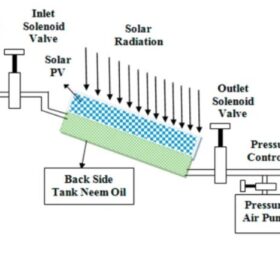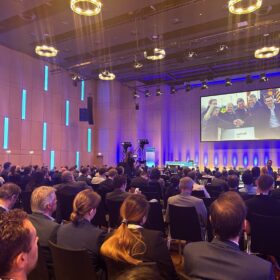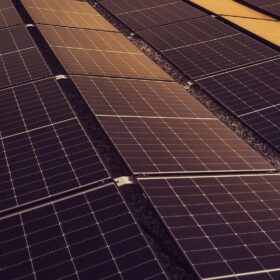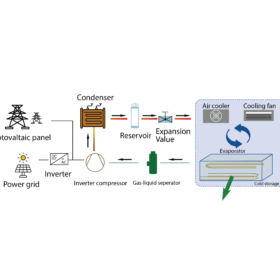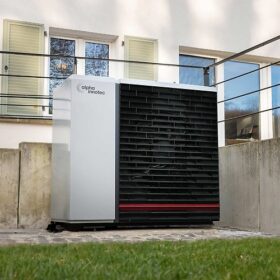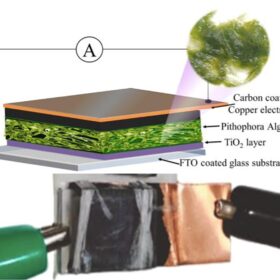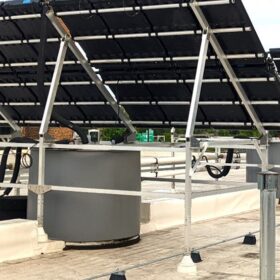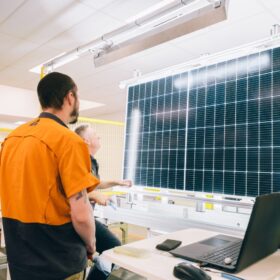Solar module cooling tech based on waste neem oil
An international research team has placed a neem oil tank on the back of solar modules for cooling purposes. The proposed solution reportedly improves PV panel performance by up to 17.8%.
Key takeaways from Advanced Battery Power + V2G conference
Battery research is advancing to address issues in the lithium-ion development process and concerns about safety and aging. Vehicle-to-everything (V2X) tech, meanwhile, is in the starting blocks, but interoperability is the key hurdle to achieving mass market penetration.
EU Ecodesign and Energy labels for solar risks fall short of objectives, says coalition
Representatives from the European Solar Manufacturing Council, Ultra Low Carbon Solar Alliance, PVthin, and the Environmental Coalition on Standards have proposed changes to the carbon footprint accountability methodology, the use of green certificates, and the planned design of the Energy Label for PV products.
Glint Solar adds PV degradation maps to utility-scale developer software
The Norwegian PV planning software company said it added the new PV degradation maps to pinpoint site locations with favorable climatic conditions.
How much polysilicon is enough
TU Delft researchers have proposed a new approach for solar cell manufacturing that implies gauging wafer thickness depending on the regions where the cells and modules will be deployed. They also suggested to adopt test conditions that are representative of the outdoor working condition of solar cells in an alternative to standard testing conditions.
Photovoltaics for cold storage
Researchers in China have developed a photovoltaic cold storage system that is reportedly able to improve refrigeration capacity and ice storage rate. The system is said to ensure a stable cooling system operation for the refrigeration needs of agricultural products.
Alpha Innotec launches new residential heat pumps
The German manufacturer said the new air-to-water systems are part of its Hybrox series. Their coefficient of performance is between 4.3 and 5.3 and their size ranges from 11 kW to 16 kW.
Indian researchers develop solar cell from living algae
The researcher team, from Amrita Vishwa Vidyapeetham university in Coimbatore, India, sandwiched macroalgae between a carbon-coated copper electrode and a titanium oxide-coated fluorine-doped tin oxide electrode. The 1 cm2 device exhibited a 1.25 mA photocurrent and 0.5 V photovoltage under UV light.
A new twist on thermal storage
Power Panel offers a PV and thermal storage solution that combines simple, safe and easy to manage hot water with advanced thermoplastic technology and architecture.
Australian solar manufacturing through the looking glass
The Silicon to Solar report, partly funded by the Australian Renewable Energy Agency, outlines ways to restore solar manufacturing to the nation with a little help from the country’s major trading partner – China.
